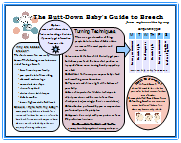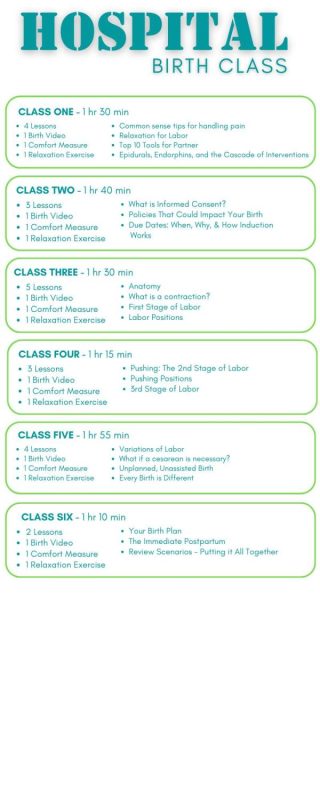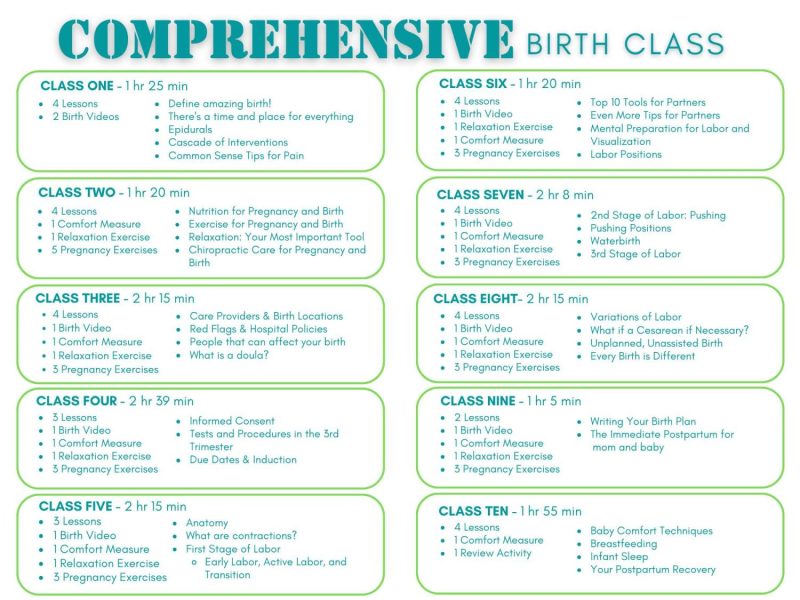 Unless you have or once had a breech baby, you probably aren’t even reading this first sentence. Breech is rarely on a woman’s radar because it is rare and, well, what is there really to know about an upside-down baby? Unfortunately, a lot of women get caught at the end of pregnancy with a surprise breech and don’t have much time to figure out what to do about it. That’s where I come in.
Unless you have or once had a breech baby, you probably aren’t even reading this first sentence. Breech is rarely on a woman’s radar because it is rare and, well, what is there really to know about an upside-down baby? Unfortunately, a lot of women get caught at the end of pregnancy with a surprise breech and don’t have much time to figure out what to do about it. That’s where I come in.
I planned a home birth and ended up with a footling breech and a cesarean, in part because I felt I had no options. Without information, I didn’t have any options. Learning some basics about breech birth ahead of time can save you a lot of anxiety and hassle in case you discover a breech at the end of your pregnancy. I created a website to help parents of breech babies learn and make decisions about their care.
Probably your reaction to the news your baby is breech will depend largely on how your caregiver feels about it. Some midwives, for example, treat the breech baby as just a variation of normal and nothing to be worried about. Most US obstetricians treat it as an automatic c-section (also saying there’s nothing to worry about). Some areas of the country are more breech friendly than others. Your chances of having professional support for a vaginal breech birth in large part come down to geographical lottery.
If you don’t want a c-section, are worried about having a vaginal breech birth, or are just looking into the options, you are likely to encounter a great deal of folk anxiety. There is a lot of nameless caution circulating around vaginal breech birth in much of the western world. For the most part, nobody will really say why, explain the mechanics, or give you any options. They just believe it is dangerous. Your questions, if you are able to ask them, may be met with indifference, impatience, condescension, or worse.
You have the right to know the things that your doctor knows about your breech baby, and to know that there are many things s/he doesn’t know.
Here are some questions you might have.
Why are babies breech?
There is a small small possibility that your baby is breech because of a developmental abnormality. Breech babies have a higher incidence of problems at birth, both congenital and birth-related. You need to know that 93% of breech babies are born normal. Some researchers are calling vertex position (head down) the first developmental milestone. But in all likelihood, this baby is perfectly normal.
If you or your baby’s dad were breech, or there are other breech babies in your family history, breech position may run in your family. In this case, your baby is less likely to turn and less likely to have any kind of abnormality. It’s just a family thing. Go weird!
Certain ways of sitting encourage a baby to just plop. Sofas, recliners, and bucket seats (like in a car) are notoriously bad for baby’s position. Midwives who work among the Amish noted a significant increase in breech babies when their communities switched from using hard chairs only to using couches and recliners. Here is a long list of other reasons your baby might be breech.
Should I try to turn my baby?
Although cesarean breech birth is more risky than cesarean head-down birth, your doctor is unlikely to give you much help or encouragement if you want to try to turn the baby. If you would rather avoid cesarean, you should try to turn the baby and/or start looking for another doctor/midwife.
How do I turn the baby?
There are many, many ways people have claimed success in turning breech babies. Many can be done by you at no cost. Doing inversions and the breech tilt, hypnotherapy, homeopothy, and chiropractic care can all turn a breech baby. You can even turn a breech baby with essential oils. Here is a comprehensive list of turning options for you to peruse.
What about ECV?
An ECV or External Cephalic Version is when the practitioner uses her hands on your belly to nudge and push the baby into a head-down position. Rates of effectiveness vary enormously with the practitioner. Of 3,700 women in twenty-six studies on ECV, there were only complications leading to cesarean in two cases. It is considered very safe, but in many cases is done in a labor and delivery ward in case it puts you into labor or distresses the baby. More on ECV for breech.
Can I still have a vaginal birth?
Recent studies show that vaginal breech birth is just as safe or safer than cesarean breech birth for the baby. Vaginal birth is almost always safer for mom. Extended or frank breeches are especially well suited to vaginal birth. The foremost vaginal breech birth practitioners (doctors and midwives) tend to agree that it is a higher-risk birth and that having an experienced, confident caregiver is the best way to assure safety. Check out a comparison of vaginal and cesarean breech birth, see if you might qualify for a vaginal breech birth, and look into planning one.
So why does my doctor recommend a cesarean?
Breech birth can be more risky than head-down birth. Due in part to a flawed study released in 2000 and a history of insurance companies threatening teaching hospitals who taught breech skills, most caregivers today have had no opportunity to deliver a breech baby. The study was debunked around 2006, and ACOG released a statement recommending vaginal breech birth in select cases. Unfortunately, so few people now remember how to attend a breech birth, and the ACOG recommendation for inexperienced doctors is to perform a cesarean. Vaginal breech birth is just starting to come back, mostly in the UK and Australia. But it is available here by a few learned midwives and doctors.
Download a FREE printable Guide to Breech at www.mybreechbaby.org, your one-stop-shop for support, resources, and information about breech babies and breech birth.








